Guild Update
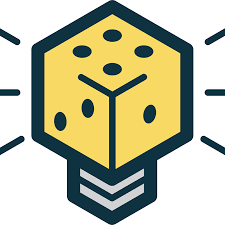
COVID and Guild Playtest Meetings
Currently we are allowing playtest facilitators for each location to determine if meetings will be held, as long as they fall within state guidelines. Updates on the status of these meetings will be announced via our BGDG of Utah’s Facebook Group.
Discord and the Guild
The BGDG of Utah’s Discord is a great way to get to know those in the guild and discuss all things game design! If you’ve not joined yet, we’d love to have you come and participate with us!
Upcoming/Current Events
Recent Game News from the Guild
Faction Fighters will launch on Kickstarter on November 18th! If you’d like to support Aaron and Paige Treglown then you can find more information by joining their mailing list.
The Second Most Perfect Moment, a stand alone expansion to Mike Brown’s (aka, the true Mike Brown) game The Perfect Moment. This stand alone expansion has been available to those who are a part of the Board Game of the Month subscription via Button Shy Games but will be available for the public via Button Shy’s website soon!
:strip_icc()/pic5739747.jpg)
Congrats to Andrew Allan and his recent successful Kickstarter campaign Brush Brothers!

Current Design Contests
Ion Award Contest (12/01/20 SaltCON)
Children’s Game Print and Play Contest (12/05/20 BGG)
Community Anthology Design Contest (01/04/21 The Game Crafter)
54 Card Contest (04/30/21 BGG)
Guild Related Videos and Reviews

Local Tabletop Project
Table Mats by Kempt Games
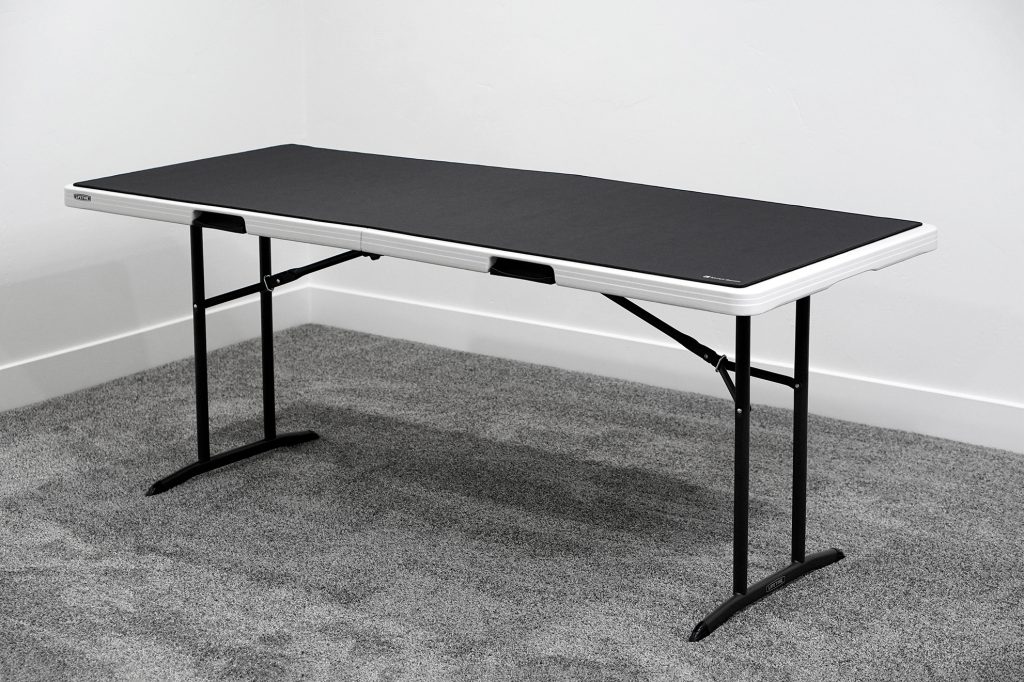
Nerding Out Podcast
Check out the newest podcast episodes of Nerding Out!
Board Game Workshop Podcast
Check out the newest podcast episodes of The Board Game Workshop!
Game Design Highlights by Skye Larsen
This month, I decided to do another podcast roundup. So here are some summaries of recent podcasts I’ve listened to, with links included in case they pique your interest.
Board Game Design Lab: How to Run a Publishing Company with Scott Gaeta
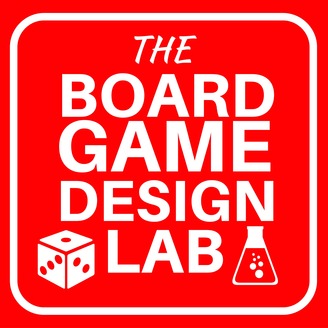
In this episode, Scott Gaeta of Renegade Game Studio talks about his path into the game publishing industry after working with Upper Deck’s trading card games. Although Scott started Renegade to take a break from licensed products, one of the studio’s most popular games is Power Rangers: Heroes of the Grid.
Scott shares some advice for creating a good game product, which could be useful for designers. He says it’s good to be cognizant of the running trends, but chasing a trend that’s already run its course is a losing cause. He also says one of the main questions when his company evaluates game designs to publish is if the game has any type of hook.
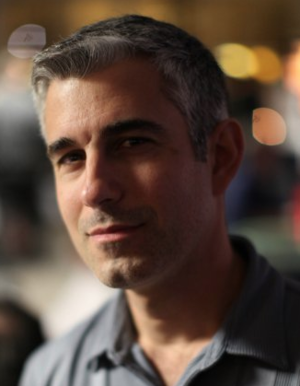
As far as marketing advice, Scott suggests reading into marketing as much as possible before releasing your game. He says that if your expertise is in design and product development, the next most important position you could hire is sales/marketing. He warns that it’s easy as a first-time creator to get caught in positive feedback loops with your friends, family, and local design groups, so you need to be careful and never stop pushing to improve your game as well as your reach.
The Game Design Round Table: Tabletop Game Development with Brenna Noonan

I’ve always enjoyed hearing the insights of board game developers like John Brieger and Brenna Noonan on Twitter. Whether you’re interested in doing development personally, or just want to improve your skills in developing your own designs, this podcast with Brenna Noonan could be a useful listen. She’s worked on some popular games including Everdell, A War of Whispers, and Roll Player Adventures.
The episode kicks off with a discussion on the interesting relationship between tabletop game design and development. Development looks different from project to project—some games just need a bit of balancing and refinement, while others are just in the core idea phase and need more work to get to the finish line. As a follow up to that discussion, Brenna also discusses the differences she sees between first-time and experienced desiginers.

One important talking point for designers in this episode is knowing when a game is done with design and ready for development, as well as when a game is done with development itself. Brenna says that new game designers can have their design process drag on, and says that the experience of a game developer might be able to help a designer know when to stop and get ready to publish.
One little takeaway from this show was that Brenna doesn’t think most developers feel like development is a “consolation prize.” Meaning, they don’t wish they were designing the game instead. They enjoy the development process.
Ludology: Playing with Time (with David Turczi)

Guild member Dustin Dowdle already posted a link to this episode in the Facebook group, but I thought I’d include it in my newsletter as well because it really is an enjoyable “deep dive” into a successful designer’s thought process and approach to making games.
David designs mostly complex, meaty games like Anachrony and Tekhenu: Obelisk of the Sun, and this show focuses on designing games in that mold. He describes himself as a “grump,” and doesn’t mince words when it comes to games he doesn’t like—so fair warning!
The big highlight of the show is when he breaks down his six components for games he actually likes. There’s also a bonus point available for any game which is unique.
/pic4735525.jpg)
- Narrative Integration: Does the fiction match the action?
- Elegance: Does the amount of rules match the depth of the game?
- Strategic Curve: Can you attempt a specific strategy?
- Replayability: Does this have strategic replayability or just lots of content?
- Achievement: Is the only achievement of the game “I won?”
- Interaction: Are interactions transparent, non-punitive, and meaningful?
Game Design Chat: Finding the Core to your Game with Fertessa Alyse
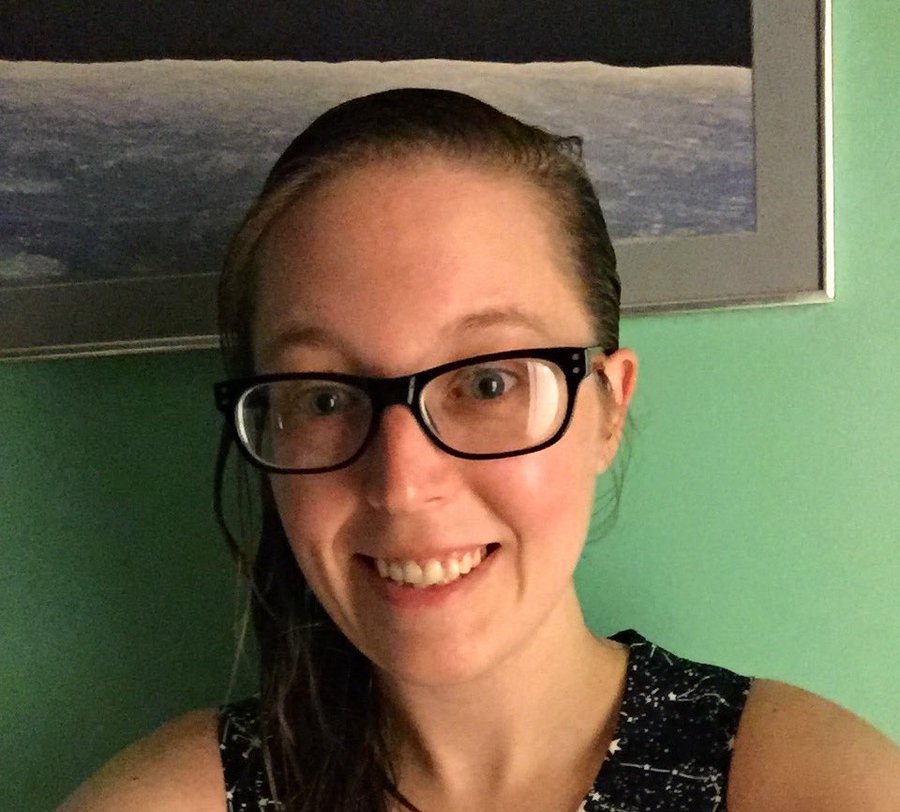
This was a live chat between publisher Carla Kopp of Weird Giraffe Games and designer Fertessa Alyse, but there’s also a handy write-up (not a full transcription) available here. Fertessa’s designs include the Book of Villainy and Wicked and Wise.
The focus of their chat centers on the importance of the “core” of your game. Fertessa describes the core as the emotional core of your game, whatever sparked the game’s creation. She shares that this involves a focus on player experience—not necessarily theme or mechanics, but the reactions players have and the settings or people you’d play the game with.

Fertessa also shares a helpful insight about how playtesters, though vital, can lead you away from your core. She talks about the temptation of following each playtester’s desires for the game, and how that can end up as an unending journey that takes you further and further from what you initially wanted. She suggests careful attention to your own notes instead of making an emotional change right after a playtest, and focusing on one change with a clear directive at a time.
If you listen to a lot of game design advice, you’ll hear over and over again the importance of playtesting (for good reason). But I found the viewpoint in this episode helpful as well—it’s easy to get lost if you take every last playtester suggestion into account.
Interview with Riley Stock (and Danny Dowdle)
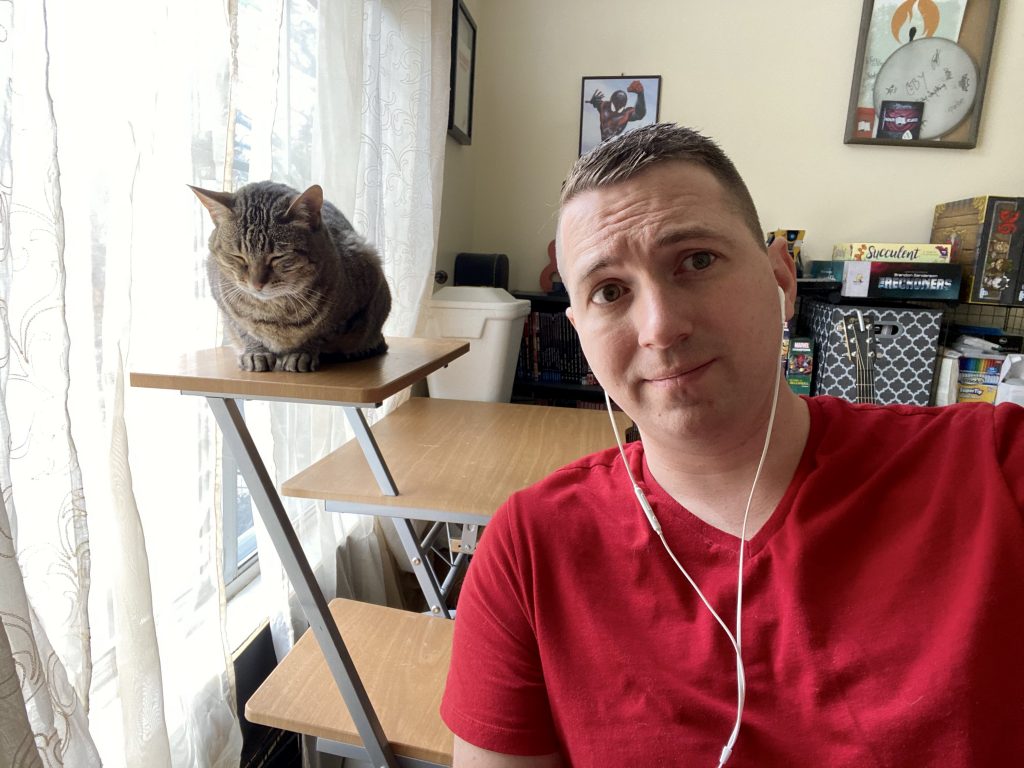
Personal Questions
What’s your backstory? Tell us about you and how you got into game design.
In Elementary school my brothers and I would make our own games using Stratego and Scrabble, but stopped in middle school. In 2013 I got hit with an idea that became an obsession to make a board game based on another video game that I loved. Most of my free time was spent workshopping it. Eventually I hit a wall and took a break, but my brain never stopped coming up with ideas for other games. I still go back to that project, frequently. It’s my white whale.
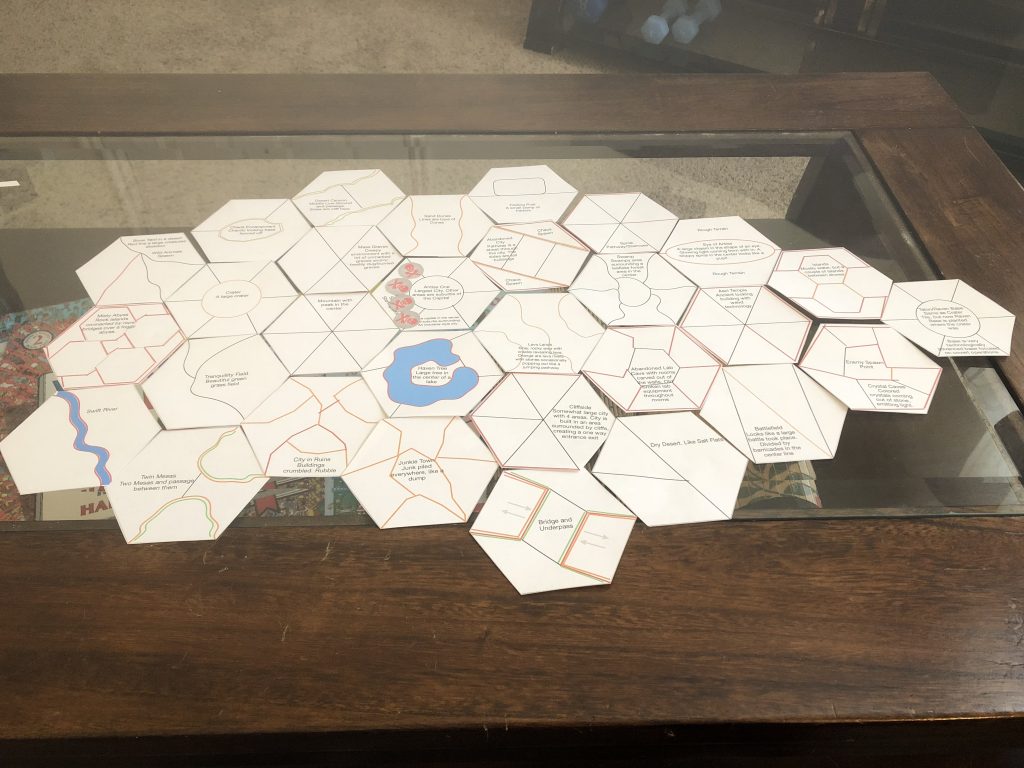
Can you walk us through your design process? Do you start with specific themes in mind or want to utilize certain mechanisms?
I usually come up with a theme. From there I try to create a short story within that theme. Then I try figuring out the mechanics by thinking how that could play out on a table. After that I write an overly detailed rulebook that helps me identify potential problems or questions that arise. I address those problems and rewrite the rulebook until I don’t have any questions or obvious problems. Then I will make the components and play around with it. That sparks more ideas and adjustments and I repeat the process. I would like to get it to the prototype stage earlier in the future, but this works for me now.
I am always impressed when someone can just start with mechanics. I’ve done that twice, but once I decide on a theme it usually really starts to take shape and really helps flesh out the mechanics.
As you have only recently been a part of the guild, having joined while COVID was going on, how did you come to be involved with the guild?

I saw a friend of mine on Facebook, Dustin Dowdle, post a game he had been working on (The Midnight Hour). I started cyber stalking him and found out about ProtoCON. A friend had hired me to develop a game for him based on Norse mythology and he wanted to take it to ProtoCON. I was way too nervous to have anyone actually play a game I designed, but went to ProtoCON just to check out other people’s designs. Dustin and I chatted and he told me about the guild. It was my busy season for work and by the time I would of been able to attend meetings, they had stopped because of COVID.
I joined the discord though and was ecstatic to find so many people that were willing to talk about game design. It has been the single most helpful thing having a community to get advice from and help me grow.
I did get to go to the Layton meeting in September, which was even better than I had dreamed. I’m anxiously waiting for things to stabilize so I can attend more.
Game and Project Related Questions
Recently you have been working on a game called Chaos inc. Could you tell us more about that game?
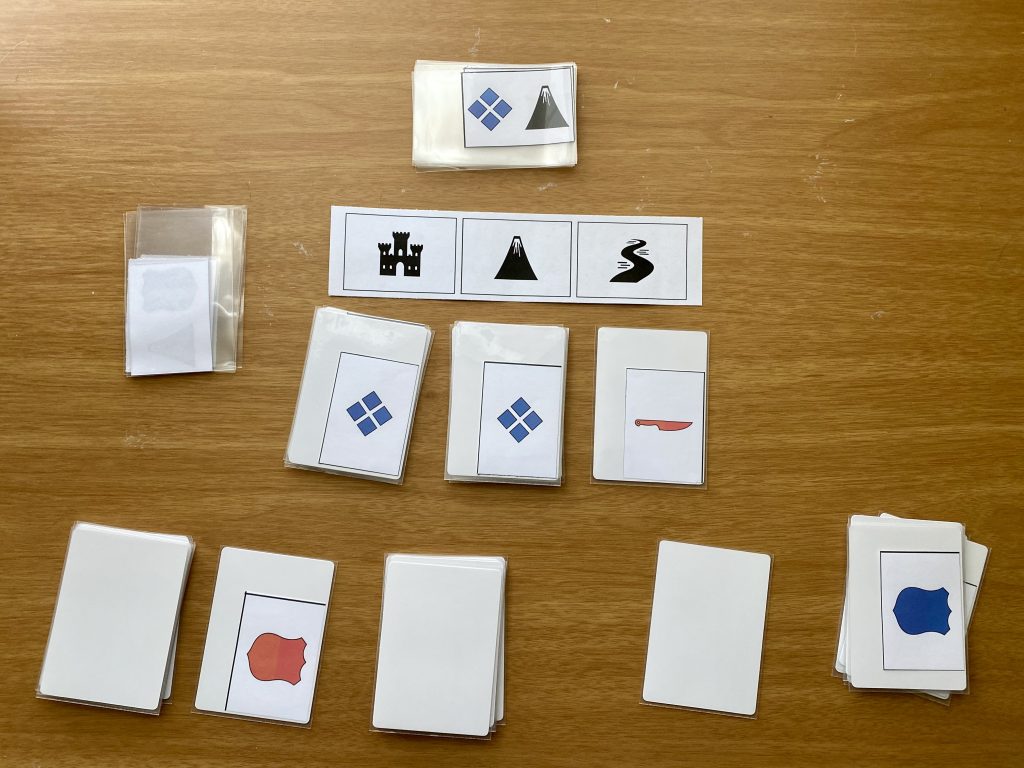
Chaos Inc. started out as a joke on my podcast. We play a game called “Ridiculous Theme” where we come up with a silly idea for a game. The day we recorded I was having some bad ADD and was jumping from task to task, but forgot what tasks I was originally working on. So I threw out the idea during that episode and spitballed that you would have an objective like chores through out the house. So say you need to brush your teeth in the bathroom. You’d have to search the Bathroom deck for a toothbrush and put it in the appropriate pile between “use” “clean” and something else… If it takes you two cards to find the toothbrush, then you have to draw 2 new objectives one at a time and place them face up over the previous one. You can’t look at past objectives, but you still need to complete them or you’ll lose points at the end of the game.
It seemed to capture the feeling I was going for, but my wife was worried that it would come of like I was making fun of something that many people struggle with. So I changed it to just be shapes and colors. I didn’t love that and ended up making it so that you are a very disorganized adventuring company. You receive contracts requesting a hero type (Symbols for a wizard, knight, and rogue) from a specific village (a variety of colors) to one of three locations (castle, river, volcano). At the end of the game completed contracts are worth +3, incomplete contracts -1, and adventurers sent to the wrong location -2. There’s single player, co-op, and competitive modes.
What design challenges did you have to face when designing this game?
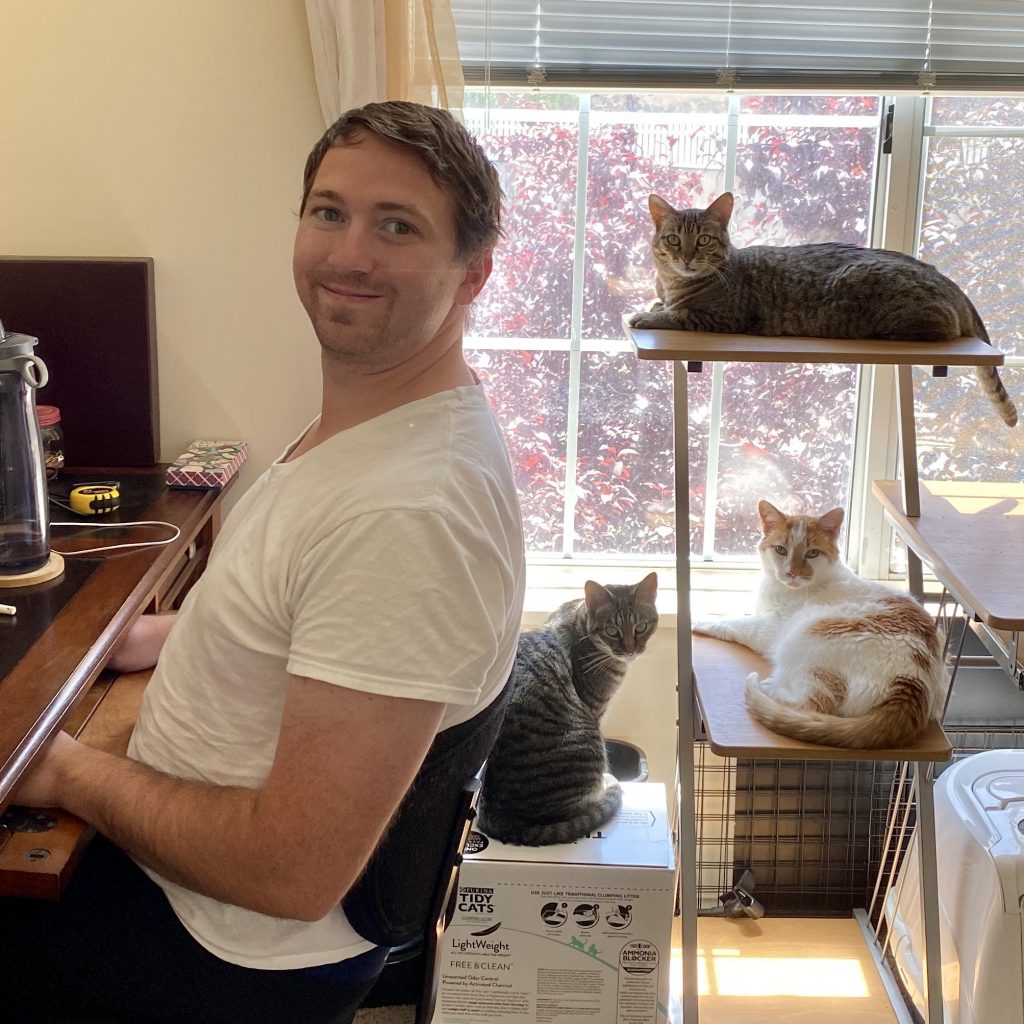
The first one was finding a theme. The iconography was very difficult in the first iteration. When I changed to shapes and colors, that seemed to help a little. But it was insanely difficult. I had 5 shapes and 5 colors. I realized that was way too hard and I didn’t love the lack of a theme. I reduced it to 3 shapes (classes) and 5 colors (villages). That made it easier, but was still pretty hard. I found that if I played with 3 colors, it was still hard, but I didn’t end with negative points. Single digit points, but not negative. There are still 5 colors, but you can add or take away colors to adjust the difficulty. 3 being standard, 4 hard, 5 insane.
Originally it was competitive and you could only search a pile or play a card from your hand. I realized that was insane! So you now search and play at the same time. My wife also suggested adding a cooperative mode to make it easier, which we have enjoyed.
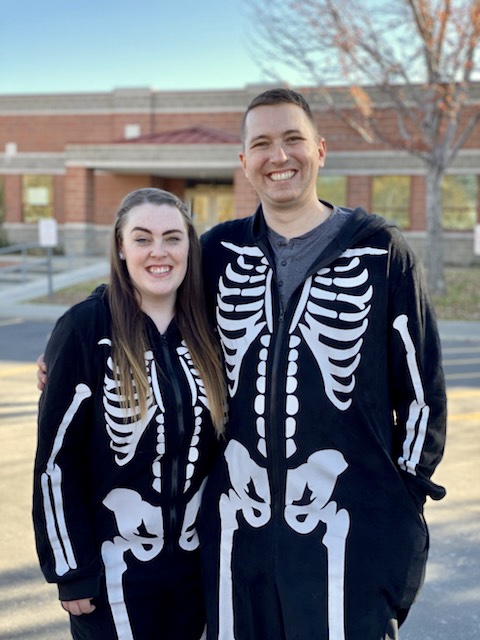
Have you collaborated with anyone else on this project or has this been a solo venture for you?
Solo. Though co-op mode was 100% my lovely wife’s idea.
Do you have any other games in the hopper right now?
I have about 14 games in my “works in progress” folder. More than half of them are right at that “needs play testing” phase, a couple have a major hurdle that I haven’t quite problem solved right, and a couple others are mostly written out but I haven’t started on any of the components.
You have started a podcast called Nerding Out. Can you tell us what inspired that adventure?

I had been wanting to start a podcast for a while and being in quarantine pushed me to just do it. Originally I wanted to do either a mental health podcast with my wife or a podcast where I could interview random people about things they were passionate about. I bought all my podcasting equipment, did some test runs with my wife, and she decided she didn’t want to do it. The next day Dustin Dowdle asked on the guild discord if anyone had any interest in doing a podcast. It seemed like fate.
Originally the plan was to focus on board game design. I didn’t want to do it alone, so Dustin suggested his brother Danny to be my co-host. Danny and I have been friends for about 20 years. We have always nerded out about Warhammer, video and board games, comicbooks, music, and anything else nerd culture.
I’d love to hear thoughts from Danny (co host on Nerding Out) about what it’s like to run a podcast.
Danny: I don’t know. We’ll tell you when we find out.
Riley: We go off on a lot of tangents. It’s always fun to record together, but editing can take forever.
Danny: It’s fun. Sometime it takes you out of your comfort zone, which isn’t necessarily a bad thing.
Riley: Yeah. 2020 has made me rusty with human interaction, so it’s helped me relearn how to talk with people.
Danny: It also gives me time to paint. (Danny is a commission miniatures painter @DeathPainting on Twitter and Death Knight Painting on Facebook)
You recently interviewed Rob Daviau on your show, what was it like to interview him?
Riley: I was nervous at first.
Danny: I wasn’t at all. Except when you forgot to hit record.
Riley: Oh yeah! I was worried he was just going to call if off there, but he was really cool about it. Really nice guy and very funny. A lot of good insight into the industry. And a major compliment he gave us was that we weren’t like any other interview he had done that week.
Danny: I don’t know if that was a compliment or a cut.
Can you tell us what you’d like to do with the podcast going forward?
Riley: Well we’ve had guild members like Dustin Dowdle, Brandt Brinkerhoff, and Aaron Treglown on and it was a blast. We would love to have more members come hang out with us and talk design or even just whatever they’re nerding out about.
Danny: We would definitely like to grow our audience. We’ve mainly focused on board games, but we also talk about video games and comicbooks.
Riley: Yeah. Really anything nerd culture we’ll talk about.
Danny: We’d love to hear people’s feedback from anyone listening, or even that hasn’t listened, what kind of things would you want to listen to? Should we focus more on game design? Do you hate when we talk about non board game topics? Whatever feedback you have for us, we’d love to hear your input.
Final Wrap up Questions
How would you suppose the guild could improve to better assist in the game development process or as a community?
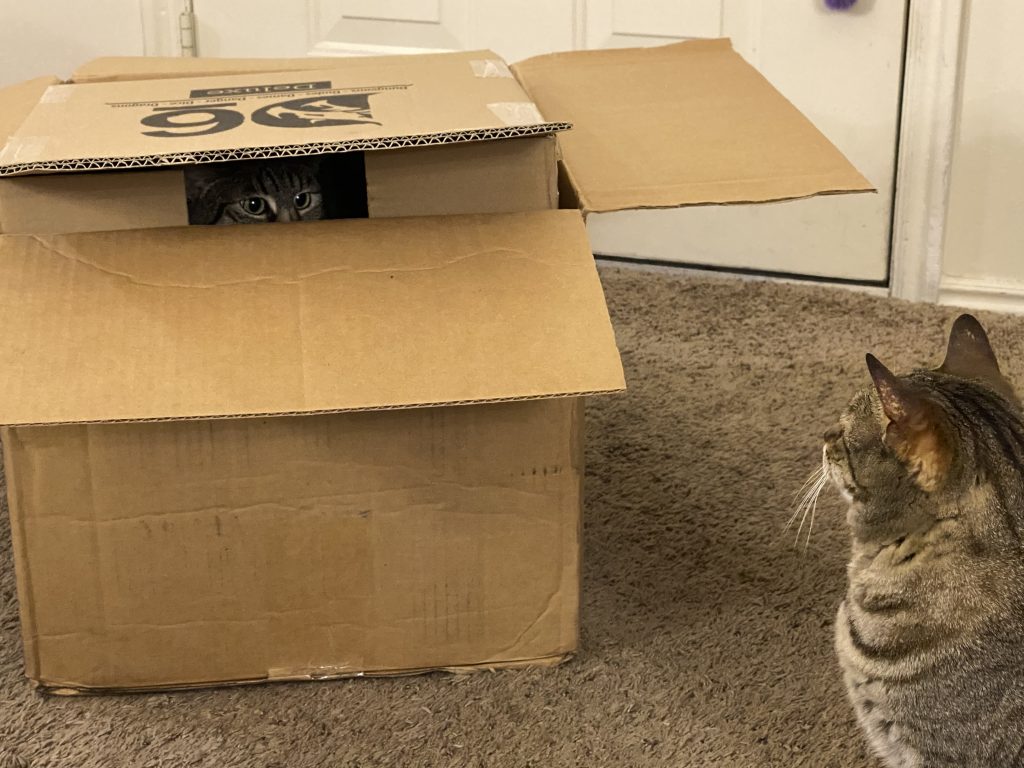
There are so many great minds in this community. I would love to organize a time once a month or so where a bunch of us could Zoom or audio chat on discord about a topic. Someone could share their experience on a topic and then lead a discussion about the topic
If people wanted to contact you or follow your game designs or listen to your podcast then how should they go about that?
I’ve mostly been using Twitter. @NerdOutWithUs is the podcast on both Facebook and Twitter.
The podcast is available on a variety of platforms. If you search Nerding Out or Riled Nerd, you can find us and if you enjoy us we’d be very appreciative if you subscribe/follow wherever you listen from.
This is a link that will take you to more links of where you can listen: https://kite.link/no-podcast
And if anyone wants to come join us for a discussion, we would love to have you on the show. Feel free to e-mail us at TheNerdingOutPodcast@gmail.com to set something up. We can talk about anything nerd related.
